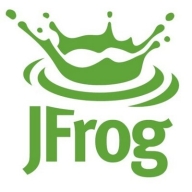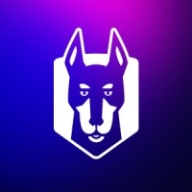

Snyk and JFrog Xray are competing in vulnerability scanning and management. Snyk appears to have advantages in pricing and support, while JFrog Xray's features may justify the cost for those prioritizing comprehensive security capabilities.
Features: Snyk offers developer-friendly integrations that enhance vulnerability detection early in development, notifications with Slack for immediate response, and a comprehensive vulnerability database. JFrog Xray provides detailed integration into the CI/CD process, robust artifact management, and excellent license compliance features.
Room for Improvement: Snyk could expand its library size, improve license compliance support, and reduce costs for on-prem installations. JFrog Xray may enhance its user interface's intuitiveness, reduce initial setup complexity, and offer more flexible pricing options.
Ease of Deployment and Customer Service: Snyk allows quick deployment with its cloud-based solution, providing excellent customer support for early-stage resolution. JFrog Xray offers a solid on-premise option suitable for larger scales, with in-depth and technically adept customer service.
Pricing and ROI: Snyk has an attractive ROI with a straightforward pricing model, appealing to startups and mid-sized businesses. JFrog Xray may have a higher initial setup cost but offers ROI through extensive features that large enterprises need for comprehensive security.
On a scale of 1 to 10, I would rate the technical support of JFrog Xray an eight because they are very knowledgeable.
When we need clarifications, we contact our account manager, and they arrange demos.
Their response time aligns with their SLA commitments.
Our long-standing association has ensured smooth communication, resulting in favorable support experiences and satisfactory issue resolution.
According to my use case, it is highly scalable.
Snyk allows for scaling across large organizations, accommodating tens of thousands of applications and over 60,000 repositories.
I use JFrog Xray primarily for security purposes, and I find it reliable.
We did experience crashes, downtimes, and performance issues with JFrog Xray.
somehow you need to adapt your GitLab pipeline and turn them into JFrog pipeline, and this is something they don't really advertise at first—you're obliged to use the JFrog CLI.
When we have given a very long tag, it doesn't work as expected and requires excessive scrolling.
X-ray needs improvement in supporting more than one database, as it currently only supports PostgreSQL.
It lacks the ability to select branches on its Web UI, forcing users to rely on CLI or CI/CD for that functionality.
Both Veracode and Snyk should implement this new scoring system for CVSS and AIVSS.
The inclusion of AI to remove false positives would be beneficial.
JFrog Xray provides a free trial of 14 days.
The basic scanning capabilities come with Artifactory, however, curation requires additional licenses.
After negotiations, we received a special package with a good price point.
Snyk is recognized as the cheapest option we have evaluated.
The policy-driven approach of JFrog Xray helped me maintain security standards by integrating it in the development pipeline.
The most valuable features of JFrog Xray are its curation capabilities, its native integration with Artifactory, scanning for vulnerabilities, and license compliance features.
With other registries such as ECR, we can use the images only in the AWS cloud. With JFrog, we can use this registry from any cloud or work locally as well.
Our integration of Snyk into GitHub allows us to automatically scan codebases and identify issues, which has improved efficiency.
Snyk helps detect vulnerabilities before code moves to production, allowing for integration with DevOps and providing a shift-left advantage by identifying and fixing bugs before deployment.
The best feature of Snyk is the integration with our ticketing system, which is Jira.
| Product | Market Share (%) |
|---|---|
| Snyk | 5.3% |
| JFrog Xray | 3.8% |
| Other | 90.9% |


| Company Size | Count |
|---|---|
| Small Business | 1 |
| Midsize Enterprise | 3 |
| Large Enterprise | 6 |
| Company Size | Count |
|---|---|
| Small Business | 20 |
| Midsize Enterprise | 8 |
| Large Enterprise | 21 |
JFrog is on a mission to enable continuous updates through Liquid Software, empowering developers to code high-quality applications that securely flow to end-users with zero downtime. The world’s top brands such as Amazon, Facebook, Google, Netflix, Uber, VMware, and Spotify are among the 4500 companies that already depend on JFrog to manage binaries for their mission-critical applications. JFrog is a privately-held, global company, and is a proud sponsor of the Cloud Native Computing Foundation [CNCF].
If you are a team player and you care and you play to WIN, we have just the job you're looking for.
As we say at JFrog: "Once You Leap Forward You Won't Go Back!"
Snyk's AI Trust Platform empowers developers to innovate securely in AI-driven environments, ensuring rapid and secure software development with enhanced policy governance.
Snyk’s platform integrates AI-ready engines across the software development lifecycle, offering broad coverage with high speed and accuracy essential for fast-paced coding environments. AI-driven features include visibility, prioritization, and tailored security policies that enable proactive threat prevention and quick remediation. By focusing on LLM engineering and AI code analysis, Snyk supports secure and productive development processes. The platform's partnerships, including GenAI code assistants, enhance AI application security by addressing new threats and code velocity challenges.
What are the key features of Snyk?Snyk is implemented across industries focusing on agile development and DevSecOps, enhancing software delivery speed and security. It is widely used for continuous monitoring and adherence to security and licensing standards, especially in environments relying on Docker image security and CI/CD pipeline integration.
We monitor all Container Security reviews to prevent fraudulent reviews and keep review quality high. We do not post reviews by company employees or direct competitors. We validate each review for authenticity via cross-reference with LinkedIn, and personal follow-up with the reviewer when necessary.